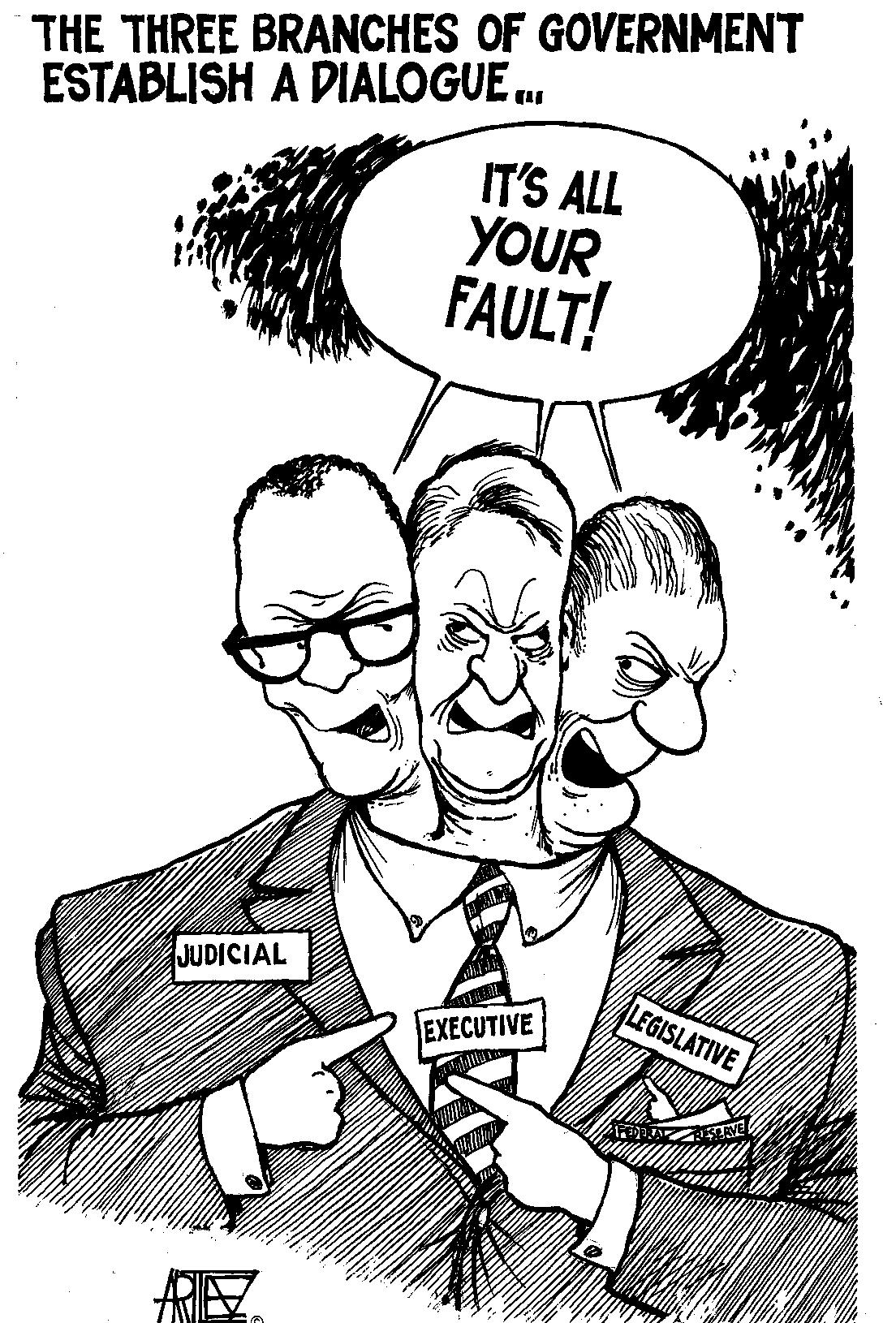|
Adjourn |
|
To suspend until a later stated time or place. |
| |
|
Apportion |
|
To divide and allocate. |
| |
|
Appropriate |
|
To devote money or assets for a specific purpose. |
| |
|
Censure |
|
A process by which a formal reprimand is issued to an individual by an authoritative body. |
| |
|
Cloture |
|
A motion or process aimed at bringing debate to a quick end. |
| |
|
Committee chairman |
|
Most important influencers of the committee agenda. They play dominant roles in scheduling hearings, hiring staff, appointing subcommittees, and managing committee bills when they are brought before the full house. |
| |
|
Concurrent resolution |
|
A resolution passed by both the House of Representatives and the Senate but is not presented to the President and does not have the force of law. |
| |
|
Conference committee |
|
Formed when the Senate and the House pass a bill and it is their job to iron out the differences and bring back a single bill. |
| |
|
Consensus |
|
A general agreement among the members of a given group or community. |
| |
|
Discharge petition |
|
A discharge petition is a means of bringing a bill out of committee and to the floor for consideration without a report from a Committee and usually without cooperation of the leadership. |
| |
|
Filibuster |
|
Unique strategy to the Senate whereby opponents of a piece of legislation try to talk it to death to try to prevent the Senate from ever voting on a bill. |
| |
|
Floor leader |
|
The floor leaders have priority in obtaining recognition to speak on the floor of the Senate. |
| |

Joint committee |
|
Exist in a few policy areas, such as economy and taxation; with membership drawn from both the Senate and the House. |
| |
|
Joint resolution |
|
A joint resolution is a legislative measure that requires approval by the Senate and the House and is presented to the President for his/her approval or disapproval, in exactly the same case as a bill. |
| |
|
Partisan |
|
A partisan is a committed member of a political party. |
| |
|
Party caucus |
|
A party that gathers to caucus. |
| |
|
Pocket veto |
|
A Veto taking place when Congress adjourns within 10 days of submitting a bill to the president, who simply lets it die by neither signing nor vetoing it. |
| |
|
President of the Senate |
|
The President of the Senate is a title often given to the presiding officer of a senate, and is the speaker of other assemblies. |
| |
|
President pro tempore |
|
The senator who presides over the U.S. Senate in the absence of the Vice President.
|
| |
|
Quorum |
|
The minimal number of officers and members of a committee or organization, usually a majority, who must be present for valid transaction of business.
|
| |
|
Rider |
|
Riders are usually created as a tactic to pass a controversial provision which would not pass as its own bill. |
| |
|
Select committee |
|
Are appointed for a specific reason.Ex. The Senate select committee that investigated Watergate. |
| |
|
Seniority rule |
|
If committee members had served on their committee longest and their party controlled the chamber, they got to be chairs. |
| |
|
Session |
|
A meeting for the execution of a group's functions. |
| |
|
Speaker of the House |
|
The Chief position in the House of Representatives. The only legislative office mandated by the Constitution. |
| |
|
Special session |
|
A session that is held in addition to the regular sessions. |
| |
|
Standing committee |
|
Handles bills in different policy areas in each house of Congress. |
| |
|
Subcommittee |
|
Smaller units of a committee created out of the committee membership. |
| |
|
Term |
|
The amount of time spent in office. |
| |
|
Veto |
|
The constitutional power of the president to send a bill back to Congress with reasons for rejecting it. (A two-thirds vote in each house can override a veto.) |
| |
|
Whip |
|
Carry the word to party troops, counting votes before they are cast and leaning on wavers whose votes are crucial to a bill. |
| |
